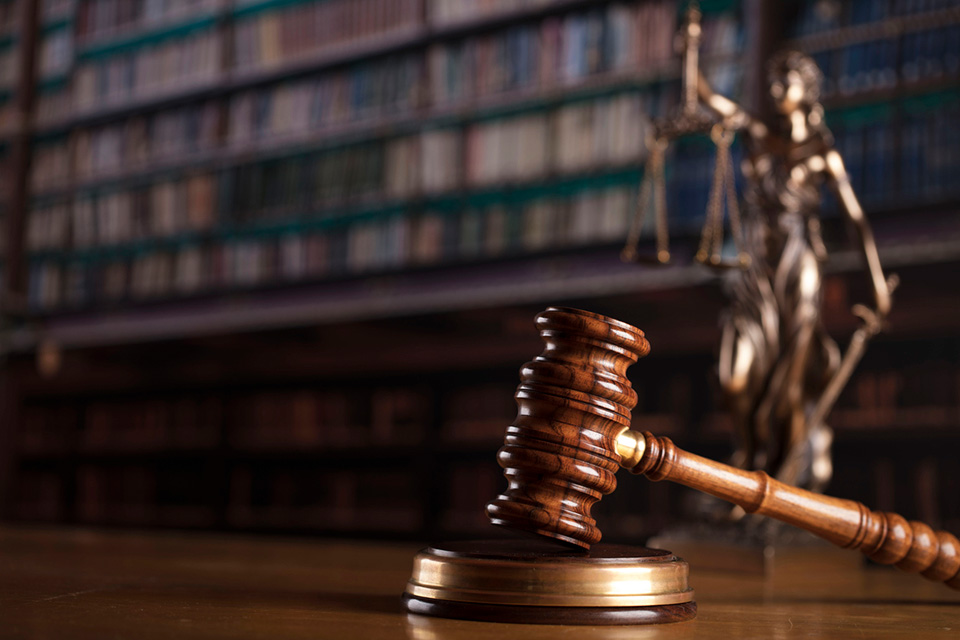Insurance Coverage and Bad Faith
Supreme Court Of Pennsylvania in Ungarean Case Holds There Is No Coverage For Losses Caused By The COVID‑19 Shutdown Orders
On September 26, 2024, Pennsylvania joined the majority of jurisdictions nationwide in holding that commercial property insurance policies do not cover losses caused by the government shutdown orders issued in response to the COVID‑19 pandemic. In Ungarean v. CNA & Valley Forge Ins. Co., __ A.3d __, 2024 WL 4293339, (Pa. Sep. 26, 2024), and Macmiles v. Erie Ins. Exch., __ A.3d ___, 2024 WL 4293341, (Pa., Sep. 26, 2024), the Supreme Court of Pennsylvania held that businesses were not entitled to coverage under their respective policies’ Business Income, Extra Expense, and Civil Authority coverages because the shutdown orders did not cause the requisite “direct physical loss of or damage to” property.
Ungarean arose when the government shutdown orders compelled a dental practice to close its business except for the purposes of performing emergency dental procedures. Macmiles similarly arose when the shutdown orders limited a bar’s business to takeout orders. The Pennsylvania Superior Court found coverage in Ungarean, holding that the dental practice demonstrated that the shutdown orders caused the requisite “direct physical loss of or damage to” property under the policy’s Business Income, Extra Expense, and Civil Authority coverages. It came to the opposition result in Macmiles, however, holding that the bar failed to prove the “direct physical loss of or damage to” property necessary to coverage.
In Ungarean, the policy provided Business Income and Extra Expense coverage on the following basis:
1. Business Income
***
b. We will pay for the actual loss of Business Income you sustain due to the necessary “suspension” of your “operations” during the “period of restoration.” The “suspension” must be caused by direct physical loss of or damage to property at the described premises. The loss or damage must be caused by or result from a Covered Cause of Loss.
***
2. Extra Expense
a. Extra Expense means reasonable and necessary expenses you incur during the “period of restoration” that you would not have incurred if there had been no direct physical loss of or damage to property caused by or resulting from a Covered Cause of Loss.
***
The Civil Authority coverage similarly covered “action of [a] civil authority that prohibits access to the described premises” as a result of “direct physical loss of or damage to property at locations, other than described premises, caused by or resulting from a Covered Cause of Loss.” Consequently, all three coverages required, among other things, a “direct physical loss of or damage to” property.
Applying the plain and ordinary meanings of the words “physical,” “loss,” and “damage,” as informed by the dictionary definitions thereof, the Pennsylvania Supreme Court held that the only reasonable construction of the operative phrase “direct physical loss of or damage to property” required either (1) the physical disappearance, partial or complete deterioration, or absence of a physical capability or function of the property (loss); or (2) a physical harm or injury to the property (damage). In other words, there must be a physical alteration of the subject property. Accordingly, to invoke the policy’s Business Income, Extra Expense, and Civil Authority coverages, the Pennsylvania Supreme Court held that there must be a physical alteration of the subject property.
The Pennsylvania Supreme Court found support for this conclusion in the policy’s definition of the “period of restoration,” which referred to the time within which the described premises should be repaired, rebuilt with reasonable speed and similar quality. Contrary to the Pennsylvania Superior Court’s conclusion, the Pennsylvania Supreme Court held that the “period of restoration” did not simply place a time limit upon coverage for Business Income and Extra Expense, but was, instead, a prerequisite to coverage. For the “period of restoration” to have any effect, therefore, a physical alteration to the subject property that necessitated repairs, rebuilding, or replacement of the described premises was necessary. Likewise, adding new installations such as additional partitions, handwashing stations, and ventilation systems to combat the spread of the COVID‑19 virus did not, as the dental practice argued, qualify as the repair, rebuilding, or replacement of the described premises as required by the definition of “period of restoration.” The addition of new installations that were not installed to correct a physical attribute of the subject property does not constitute the repair, rebuilding, or replacement of the existing property as the result of a physical loss or damage.
In the end, the Pennsylvania Supreme Court concluded that the dental practice did not allege the requisite “direct physical loss of or damage to” property, as “the government‑ordered COVID‑19 shutdown cannot constitute ‘direct physical loss of or damage to’ any property,” i.e., the shutdown orders did not cause the physical alteration of property. Rather, the dental practice alleged only economic loss through the partial loss of the use of its business premises, and, even if a loss of use might qualify as a “physical loss” in narrow circumstances, it did not in Ungarean because the dental practice still had the ability to access the described premises and use it for emergency dental procedures.
In sum, the Ungarean Court found that the policy’s Business Income, Extra Expense, and Civil Authority coverages did not cover the dental practice’s losses caused by the government shutdown orders. The Court therefore reversed and directed the Pennsylvania Superior Court to remand the matter to the trial court for entry of judgment in favor of CNA. Based on its decision in Ungarean, the Court affirmed the Pennsylvania Superior Court’s decision in Macmiles.
About Us
We’re committed to staying on top of the issues of today and tomorrow, such as the ever-changing landscape involving bad faith, cyber-insurance, and insurance for advanced technology sectors, artificial intelligence players, machine learning companies, and autonomous vehicle manufacturers and users.

Alan S. Miller - Practice Chair
Alan has more than thirty-eight years of experience in complex litigation and counseling, concentrating in the areas of environmental law, insurance coverage and bad faith, and commercial litigation. He chairs the firm’s Environmental and Energy Law practice and the Insurance Coverage and Bad Faith Litigation Practice.
Alan’s environmental law practice has involved counseling, litigation and alternative dispute resolution of matters involving municipal, residual, and hazardous waste permitting and compliance, contribution and cost recovery actions under CERCLA and related state statutes, claims for natural resource damages, contamination from leaking underground storage tanks, air and water pollution regulatory permitting and enforcement actions, oil and gas drilling compliance and transactions, and real estate transactions involving contaminated and recycled industrial sites.

